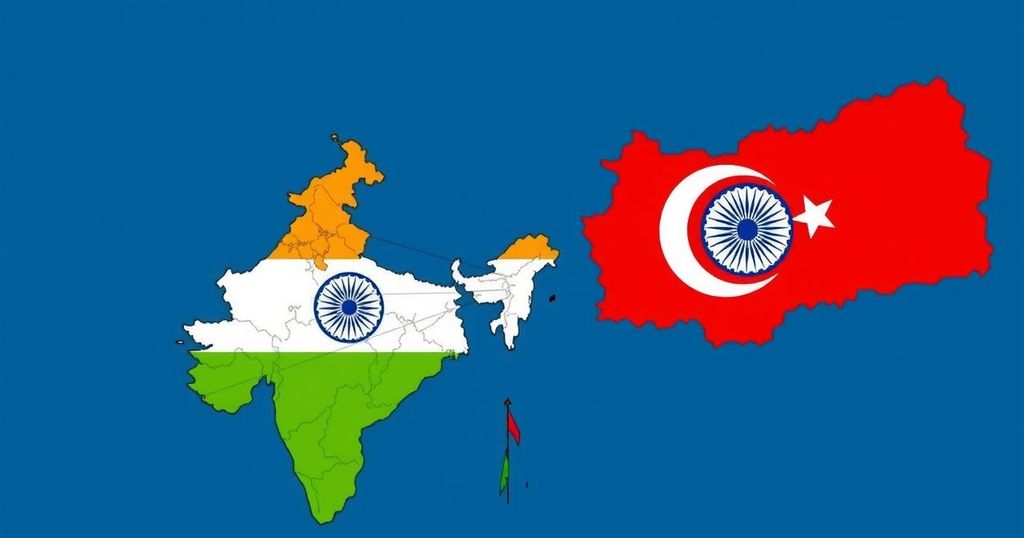Turkey’s bid to join BRICS has been rejected by India due to Turkey’s close ties with Pakistan, resulting in a failure to reach consensus among current members. The group has decided against expanding membership for the foreseeable future, despite Turkey’s official request to enhance its global presence.
Turkey’s aspiration to join the BRICS group has been thwarted following India’s rejection of its membership bid, primarily due to Ankara’s close ties with Pakistan. Consequently, the prerequisite consensus among the existing members was not achieved, leading to a decision to refrain from accepting new members for the foreseeable future. On October 24, reports emerged from the German newspaper BILD confirming that India had dismissed Turkey’s BRICS application. It was noted that the BRICS leadership convened and ultimately resolved against the expansion of the bloc. Recent additions to BRICS have included Iran, Egypt, Ethiopia, the United Arab Emirates, and Saudi Arabia, while Turkey, Azerbaijan, and Malaysia had submitted formal requests for membership. Analysts believe that objections from various nations indicate a reluctance to pursue any further enlargement of the group in the near term. Turkey officially expressed its desire for BRICS membership on September 2, with the intention of enhancing its global influence and fostering relationships beyond its longstanding Western alliances. Reports from U.S.-based news agency Bloomberg highlighted that the Turkish government perceives a shift in geopolitical dynamics away from developed nations. At the 16th BRICS summit held in Kazan, Russia, Turkish President Recep Tayyip Erdoğan, invited by President Vladimir Putin, addressed critical global issues, including the ongoing violence in Palestine and a recent tragic incident in Ankara that resulted in five fatalities. The BRICS coalition, which originated as the ‘BRIC’ comprising Brazil, Russia, India, and China in 2006, sought to amplify the voice of developing nations in global affairs. The group was expanded to include South Africa in 2011, thus rebranding as ‘BRICS.’ Its central aim is to advocate for the interests of countries in the global East and South, providing a counterbalance to the U.S.-dominated Western bloc while promoting reforms in international institutions like the International Monetary Fund, World Bank, World Trade Organization, and the United Nations. While Russia had initially spearheaded the coalition, analysts have noted China’s growing influence within the organization, marked by its substantial economic and demographic power.
The attempt by Turkey to join BRICS reflects a broader strategy to increase its global profile amidst shifting geopolitical landscapes. The BRICS group, originally formed to amplify the voices of developing nations, has seen recent expansions, yet it faces resistance to further enlargement. Turkey’s application was particularly contentious due to its relationship with Pakistan, a factor that significantly influenced India’s opposition. The geopolitical realignment initiated by Turkey signifies emerging alliances as countries navigate a complex international order characterized by competing interests and alliances.
Turkey’s recent bid to join BRICS was ultimately unsuccessful due to India’s refusal, which stemmed from Turkey’s affiliations with Pakistan. The decision underscores the challenges facing the bloc regarding expansion, particularly when consensus among existing members is lacking. As the BRICS framework evolves, it continues to serve as a platform for developing nations seeking to reform international governance structures dominated by Western powers.
Original Source: www.duvarenglish.com






